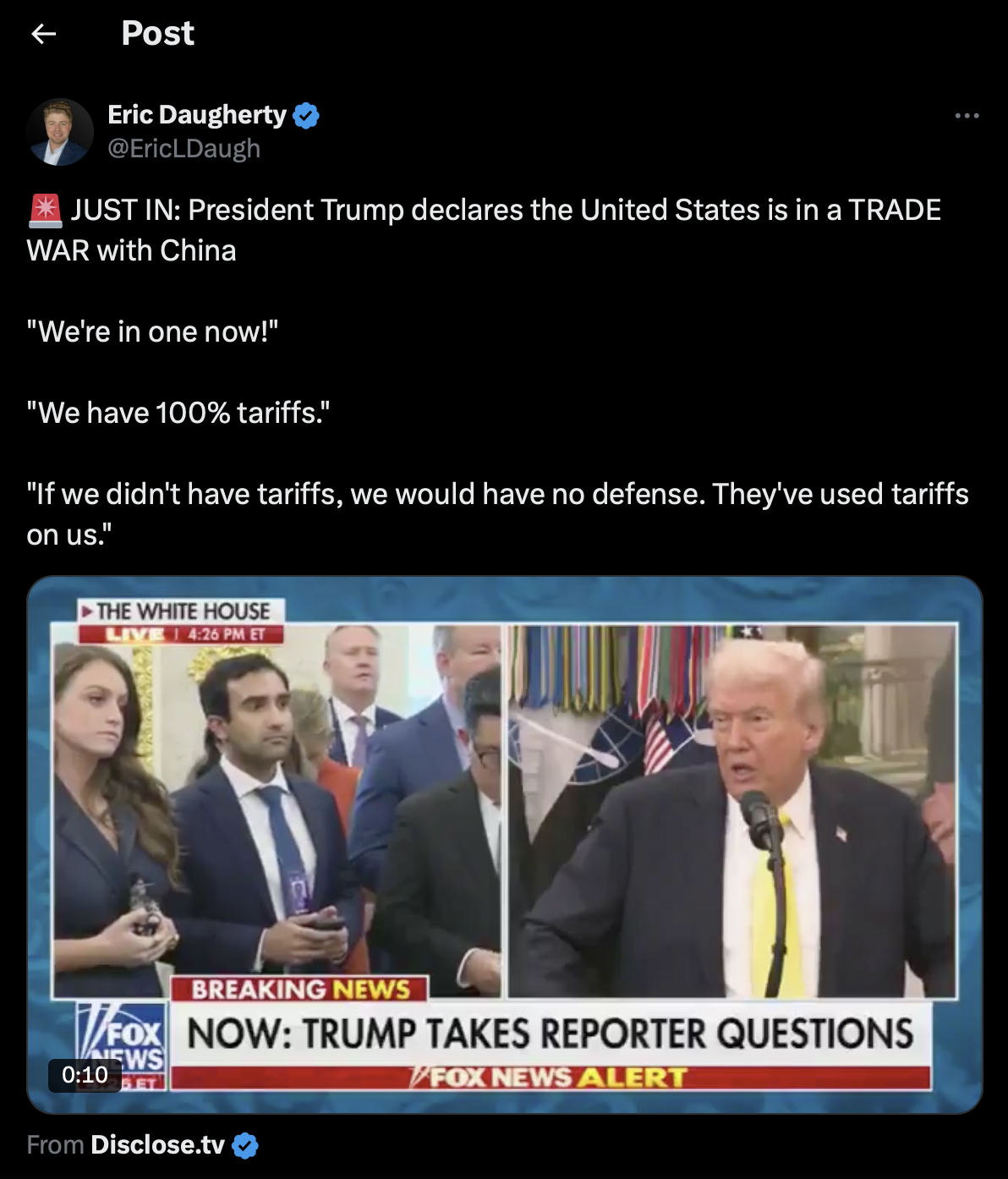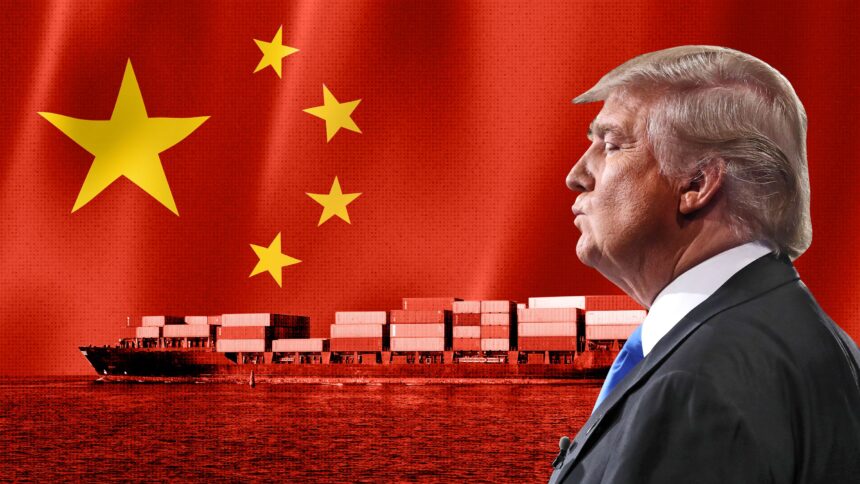Trump Trade War With China: Impact on Bitcoin Mining
Background: Trump Confirms Trade War With China
US President Donald Trump has officially acknowledged that the United States is now engaged in a trade war with China. Speaking to White House reporters on October 15, 2025, Trump confirmed, “We’re in one now,” after being asked about the prospect of a sustained trade war. His comments followed threats made last week to introduce a 100% tariff on all Chinese imports, a move he described as necessary for America’s national security.
“If we didn’t have tariffs, we would be exposed as being a nothing, we would have no defense,” Trump said, emphasizing the importance of tariffs as a strategic tool (Cointelegraph).

Market Reaction: Impact on Crypto and Bitcoin Mining
Trump’s announcement and a prior social media post referring to increased tariffs triggered significant volatility in the crypto markets. Bitcoin’s price dropped sharply, falling from approximately $121,560 to below $103,000 within several hours last Friday. The sudden decline wiped out nearly $19 billion from the crypto market, with analysts attributing the crash to both leveraged positions and heightened concerns over US-China trade tensions. Despite initial market turbulence, Bitcoin prices stabilized, recording a slight gain of 0.1% in the hour following the latest White House remarks, according to CoinGecko data.
The trade war extends beyond digital assets. China’s decision to restrict the export of rare earth minerals—materials critical for semiconductor and hardware manufacturing—prompted Trump to double down on tariffs. These restrictions have direct consequences for the global supply chain, including sectors like cryptocurrency mining that rely on specialized computer chips.
Tariffs Raise Costs and Challenges for US Bitcoin Miners
US Treasury Secretary Scott Bessent criticized China’s trade policies, warning that China’s strict export controls would ultimately harm its own interests. “We and our allies will neither be commanded nor controlled by a group of bureaucrats in Beijing,” Bessent stated on Wednesday (Cointelegraph).
Under the new tariffs, US-based Bitcoin miners now face a 57.6% import tax on mining equipment from China and a 21.6% tariff on machines sourced from Indonesia, Malaysia, and Thailand. These increased costs have made it significantly more expensive for US miners to procure the latest Application-Specific Integrated Circuit (ASIC) miners, the highly efficient hardware essential for Bitcoin mining.
Last year, US Bitcoin mining firms struggled with US Customs and Border Protection, which seized thousands of mining devices due to suspicions of illegal radio frequency equipment imports. Despite these regulatory hurdles and rising costs, no major US mining company has relocated operations to other countries, contrary to some analysts’ predictions.
For more updates on cryptocurrency markets and regulation, visit the Vizi Cryptocurrency hub.
What’s Next: Trade Tensions and Industry Outlook
As the Trump administration intensifies its trade war posture, the industry faces continued uncertainty regarding supply chains, regulatory enforcement, and cost structures. Analysts are closely watching both US policy developments and China’s next moves, particularly any escalation of technology export restrictions or additional tariffs.
While tariffs have raised expenses for US Bitcoin miners, firms have thus far refrained from relocating. The situation remains fluid, with further policy changes and market reactions possible as trade negotiations progress.
Sources: Cointelegraph




















